For the past 80 years, I have started each day in the same manner,” Pablo Casals told his biographer when he was 93. “It is a sort of benediction to the house. I go to the piano, and I play two preludes and fugues of Bach.” Then, Casals would stretch his legs, admire the dew on the spiderwebs in the garden, or trace the shoreline near his house. Finally, he would pick up the cello and begin his practice.
There is a spiritual element to all of this. But Casals was steady in less holy matters too: he declined to grow out his hair when the fashion of the time demanded a dramatic mane, carefully read the newspaper and the clippings a friend sent him when he was in exile, and answered his letters promptly.
Only once, when he was in his early 20s, did Casals experience an inner rebellion. He had gone mountain climbing in the Bay Area with a group of friends, his first time in America. It was 1901. He was already quite famous in Europe: besides working as the soloist for the Madrid Symphony, he toured the continent with pianist Harold Bauer, played for Queen Victoria and befriended and secured the patronage of the Spanish royal family. Now, they were on their way down from Mount Tamalpais when suddenly a boulder came hurtling straight towards him. He jerked his head out of the way. The rock missed his skull but smashed his left hand: a cellist’s fingering hand. His friends were horrified. Casals described having “a strangely different reaction” when looking at his mangled fingers. “Thank God, I’ll never have to play the cello again!”
Instead, a surgeon set the bone, a wealthy admirer offered him two months rest in his San Francisco apartment, and Casals went back to his daily studies, continuing to practice, perform and teach for at least another 70 years. Later, he explained his moment of mutiny by saying that the life of a dedicated musician “does involve a sort of enslavement.”
If Pablo Casals had been born at a different time, or in a different country, his story may have ended there. Instead, the Spanish Civil War broke out.
For reasons that make less sense the more you think of it, the Spanish Civil War—which left 500,000 people dead and ended with Franco executing another 100,000 after his victory, while 35,000 starved to death or succumbed to disease in concentration camps—is known as an exciting time. The excitement is preserved in some of the letters sent home by the young leftists of the International Brigades. In these letters, the volunteers traveling to Spain from 55 different countries explained to their family and friends why they were prepared to die on someone else’s battlefield. “You see Mom,” wrote Bill Bailey, an Irish-American seaman from Hoboken, “in Spain there are thousands of mothers like yourself who never had a fair shake in life. They got together and elected a government that really gave meaning to their life. But a bunch of bullies decided to crush this wonderful thing.” Others didn’t even feign idealism. The Belgian soldier Nick Gillain was in it for the “adventure,” he wrote later, and to escape “this rainy August of 1936.”
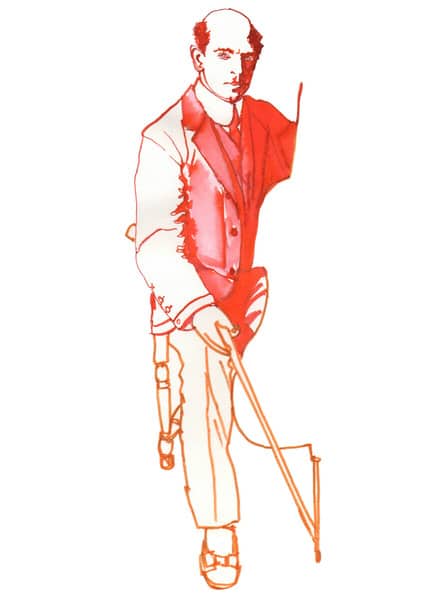
For Casals, war was not exciting—it was grotesque. He was in Paris when the previous war had been declared, in 1914, but instead of the somber mood he had expected when he heard the news, he found that the city had broken into a wild party. “Bands playing martial music, flags flying from every window, bombastic speeches about glory and patriotism! … Who knows how many of those young men who paraded smiling through the streets died in muddy trenches, or came home crippled for life.”
Unlike the ready young men of the International Brigades, the fascist troops were marching, not through some blank canvas, but through Casals’s native country, his Catalonia, his Barcelona, his little beach town of Sant Salvador, about three miles from where he was born.
Since he was a year old, his mother had taken him there and, with Pablo swaddled in blankets, they would sit on a bench next to a little church and listen to the sound of the sea. It was by the beach in Sant Salvador that Casals later built his house. In a glass cabinet, he kept the clock his father had made for him when he was a little boy—his father had never studied, but he loved to spend hours in his workshop experimenting. At the house, Casals also kept his first “cello,” which his father had fashioned out of a gourd and a single string, after Pablo had described the miraculous instrument he had seen when traveling musicians passed through their little town.
The Spanish Civil War started with a fascist insurgence. Casals had been rehearsing with his orchestra when a messenger ran in and handed him an envelope. There would be no concert, everyone had to go home immediately. That night, in waves of machine gun fire, fascists took over government buildings. Poorly armed loyalists of the Republic—mostly union members and workers—drove trucks through doors and windows, taking machine guns from the fascists they had killed. Anarchists set fire to churches and opened prisons. Through loudspeakers set up in the street, the government shouted its communiqués. “Do not turn your radios off! Stay calm! The Republic is in control of the situation!”
That week, Casals, who was well-connected, hurried over to the building of the Catalonian government. When he was told they were doing “everything we can,” he made his way to the headquarters of the anarchists. Casals was by then a few months shy of 60 and usually wore a three-piece suit and a hat. On these young anarchists, who sat on tables smoking as they listened, he cannot have made the impression he was hoping for. They sent him off with the words, “The people are the only law.”
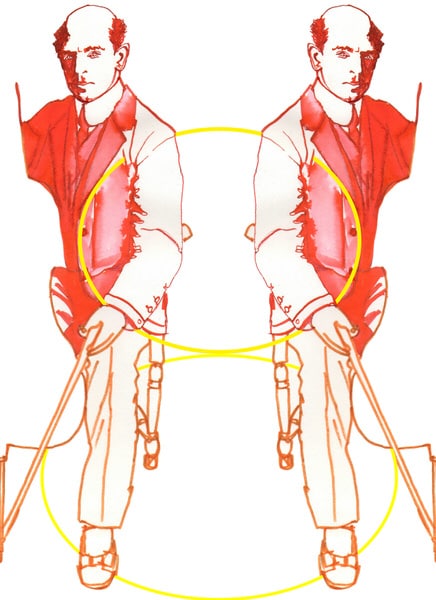
Urged on by Gassol, the Culture Minister of Catalonia, Casals started traveling again. While Nazi Germany and fascist Italy sent troops, tanks and bombers to aid the Spanish fascists, Casals played benefit concerts all throughout Europe to collect money for food, medicine and clothing from his moved audiences. During intermissions, he would broadcast messages over the radio, imploring the democratic nations to intervene, but only Mexico and the Soviet Union sent help. France, Great Britain and the United States were apprehensive about arming labor unions, and they were hoping to avoid war with Hitler altogether. While the latest German aircraft technology allowed for experiments with carpet bombing, Casals made frequent trips back home. Instead of waiting out the chaos in Paris or San Francisco, as friends suggested, he continued performing and conducting, hoping to lift moral and keep the musicians in his orchestra employed.
Then his name was mentioned on the radio. General Queipo de Llano, the chief propagandist of the fascist Falange, would often broadcast from his base in Seville surrounded by like-minded men, who laughed as he told vulgar stories—the racism should sound familiar to anyone following American, Dutch, Brazilian, French, British, German or Austrian politics today—about what the Moroccan troops, who had been shipped over from the former Spanish colony to aid the fascists, would do to women who supported the Republican government. “That Pablo Casals!,” the general said one night, his posse roaring in the background. If he caught him, he would “cut off his arms—both of them—at the elbow!”
Casals left. Franco had won. While the Falange rounded up any suspected leftists to be arrested or executed, and hundreds of thousands of refugees fled into northern France, Casals sat in a friend’s apartment in Paris with the blinds drawn. A friend wrote him that fascist generals had broken into his house in Sant Salvador and made themselves at home. For days, Casals didn’t leave the room or speak with anyone.
Then, in the chill of winter, he decided to go to Prades. In the little mountain town in French Catalonia just north of the Spanish border, Casals booked a room at the one hotel. He could see the peak of Mount Canigou from his window. The town reminded him of home. The same winding streets and whitewashed houses, the same vineyards and orchards around the village.
Not 40 miles away, the French government had rounded up Catalan refugees inside barbed-wire enclosures, without providing any infrastructure to house them. No toilets, no hospital, almost no water and food. Almost as soon as he arrived, Casals started visiting the camps. In Argelès, the refugees were penned in between the dunes, along the sea. Casals told his biographer that, even though it was winter, the French government had provided “no shelter whatsoever—many had burrowed holes in the wet sand to protect themselves from the pelting rains and bitter winds.”
Together with a few friends who, just like him, had the freedom, the means and the connections, Casals started writing letters. From his room at the hotel, they wrote to every influential person, institution and newspaper they knew around the world, hundreds and hundreds of letters. Boxes of aid arrived and were distributed—clothing, food, medical supplies. “Of course there was never enough!”
Casals went to the camps as often as he could. Many refugees were glad that someone as famous would come and visit. But each time, Casals said, “I dreaded going.” At night, he would lie awake, thinking of how many more men, women and children were dying from “exposure, hunger and disease.” He developed headaches and dizzy spells, and when he would briefly leave the town to perform at a benefit concert in Paris, he often found he couldn’t play that well. “I was doing so much letter writing that my hands had a tendency to tremble.”
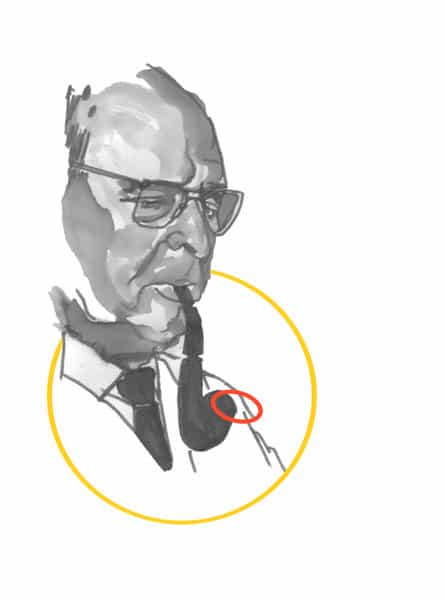
A knee-jerk instinct would be to smirk, as we do with the conspicuous humanitarianism of the rich and famous. Casals had trembling hands; he wasn’t dying from dysentery. He had trouble sleeping, but a bed still beats a hole in the sand. Casals had played for presidents, king and queens; what can you say—noblesse oblige.
But how often does the noblesse heed its obligation to help, really? Classical musicians today may not electrify public opinion the way Casals did, but they have access to the halls of power. In October 2018, days after Kavanaugh was confirmed to the Supreme Court, and while hundreds of children separated from their families at the U.S.-Mexico border were still not reunited, Joshua Bell accepted an invitation from a Republican consultant to create a “depoliticized moment on Capitol Hill.” “I would never want to alienate one side,” Bell said, “because I think music really does bring both sides together.”
Gustavo Dudamel likes to keep his music apolitical too. In September 2015, more than two years after Venezuela plunged into chaos when suspected election fraud and hyperinflation triggered waves of protests, which were violently countered by Maduro’s security forces, Dudamel wrote in an op-ed in the LA Times, titled “Why I don’t talk Venezuelan politics,” that picking sides “could … politicize El Sistema.” He argued that “El Sistema is far too important to subject to everyday political discourse and battles. It must remain above the fray.” The Venezuelan pianist Gabriela Montero, and others, believe the real reason is more pedestrian. Hundreds of millions of dollars of public funds go towards flying Dudamel and El Sistema all around the world, with the “endlessly repeated, media-friendly, promoter-friendly, agent-friendly mantra of ‘social transformation through music,’” even as his country needs UN help to buy medicine.
Why so few famous classical musicians today take a stand is not obvious. Is speaking out for what you believe in a professional liability, warned against by the boards of donor-funded concert halls and social media managers alike? Have the top musicians in our winner-takes-all economy—Dutch conductor Jaap Van Zweden reportedly made $3.6 million in the 2015-2016 season at the Dallas Symphony Orchestra, before being poached by the New York Philharmonic for an undisclosed sum—grown too comfortable inside their gilded cages? Or are these star performers just busy, like most of us, choosing the Great British Baking Show over advocacy?
Casals paid a high price for his stance against fascism. He never saw Catalonia again. Except once, to bury his longtime friend and collaborator Frasquita Capdevilla in the little cemetery of El Vendrell, next to his mother, as she had asked, Casals would not set foot in Franco’s Spain. He moved to Puerto Rico, and joined every peace-action committee and anti-nuclear-war group he could find. He continued collecting money for the Spaniards who the war had left crippled or impoverished.
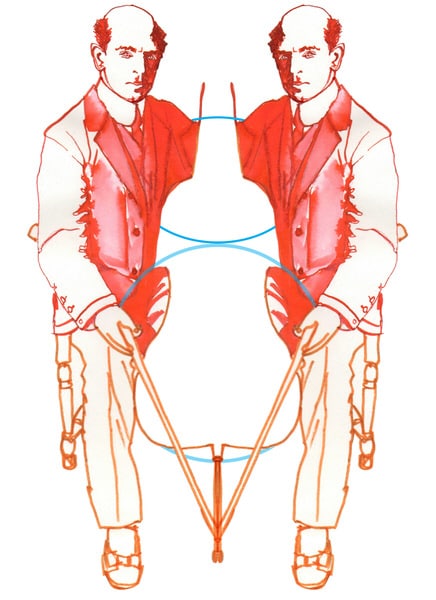
Even in his final years, after decades in exile in Puerto Rico, whenever Casals closed his eyes, he saw Sant Salvador, “with the little fishing boats on the sand, the vineyards and olive groves and pomegranate trees.” Casals died in Puerto Rico in 1973, two years before Franco.
On YouTube, there is a 10-minute video of Casals modeling for a bust. The session doubles as an interview, and the sculptor, Robert Berks, dances around while firing off his questions. “Why did you pick the cello?” “Do you have any special feelings towards America?” “Who was the first who really believed in you?” Jumping from one foot to the other, he reaches into a cooler, throws Casals a quick glance and slaps another hand of fresh clay onto the armature.
Casals, almost 95 at that point, is sitting on a chair by the window in suit and tie, answering on what seems like autopilot—he has told these stories many times before. Only when Berks wants to know if he’s still learning does he look up, his eyes twinkling. “Every day,” Casals wags his finger, playfully reprimanding the camera, “I am doing every day—every day—the same thing that I used to do when I was 13.” “Every day,” he goes on, listing the scales and the arpeggios, “and then, I finish with a Bach Suite, every day.”
Practicing radical commitment is what classical musicians do. Now, what they need is a well-tempered moral compass. ¶

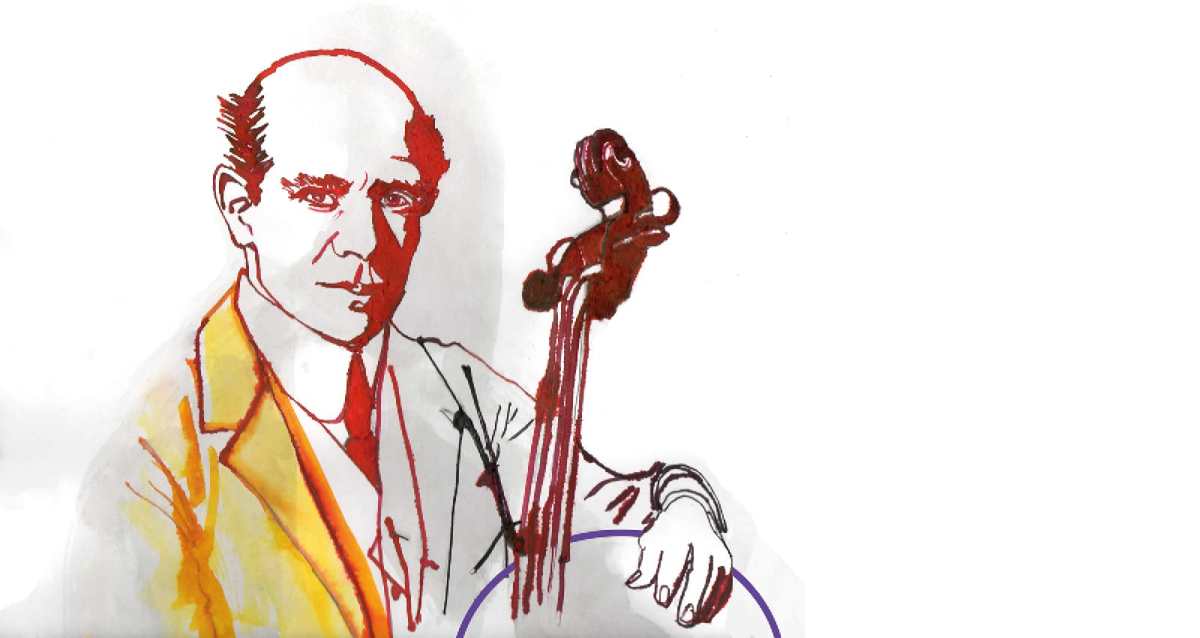
Comments are closed.